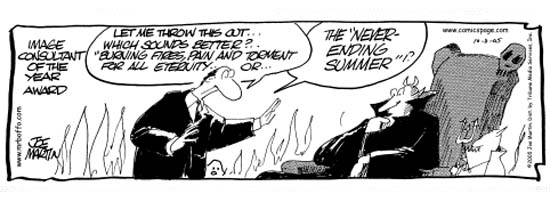 Phrasing and language is so important. Over the past several years, listeners have gotten onto our game of creating music sweeps. Whether it’s 45 minutes, 10 in a row, or other iterations, most of these old music guarantees are either wallpaper, or they simply cannot generate much in the way of superiority in the current environment.
Phrasing and language is so important. Over the past several years, listeners have gotten onto our game of creating music sweeps. Whether it’s 45 minutes, 10 in a row, or other iterations, most of these old music guarantees are either wallpaper, or they simply cannot generate much in the way of superiority in the current environment.
Does this mean we should drop music quantity statements altogether? No, because there is evidence that saying "more music" in different ways can be sticky and effective. For that, we may have "Less Is More" to thank. Whether you think this Clear Channel policy is good, bad, or irrelevant in the big picture is not the point. "Less Is More" has sent the message to advertisers that cutting back on the amount of commercials is indeed a step in the right direction.
Not too many years ago, it was verboten to use the phrase "commercial free," much less promoting that our stations were now playing more music. Why? Because GMs and GSMs would complain that by positioning commercials as "evil," it sent the wrong message to the advertisers.
But now, advertisers know that too many commercials are indeed a problem. Stations that reduce their inventory (or find ways to say they have) are at an advantage with both listeners and clients. Today, it’s clutter and large spotloads that are the problems. As a result, stations are finding resonance with language like "fewer commercials" or "back in three minutes or less." While it may add up to the same amount of music (or commercials) as in the "45 minute rock block" model, the new language sounds better.
Want an analogy? For years, the automakers have been offering "rebates" as a way of discounting cars and making the buying process more attractive. In the early days, rebates worked. But like anything else that is overdone, rebates lost their "Purple Cow" properties, and buyers began to tune them out.
But, by changing their language (and NOT the actual cost reductions), the automakers have reinvigorated their sales. The secret? They changed the jargon to "employee discounts" or "you pay what we pay." That’s right – the actual discounts are no greater than what the automakers were offering before.
It’s all in what you say and how you say it.
- What To Do If Your Radio Station Goes Through A Midlife Crisis - April 25, 2025
- A 2020 Lesson?It Could All Be Gone In A Flash - April 24, 2025
- How AI Can Give Radio Personalities More…PERSONALITY - April 23, 2025





Leave a Reply